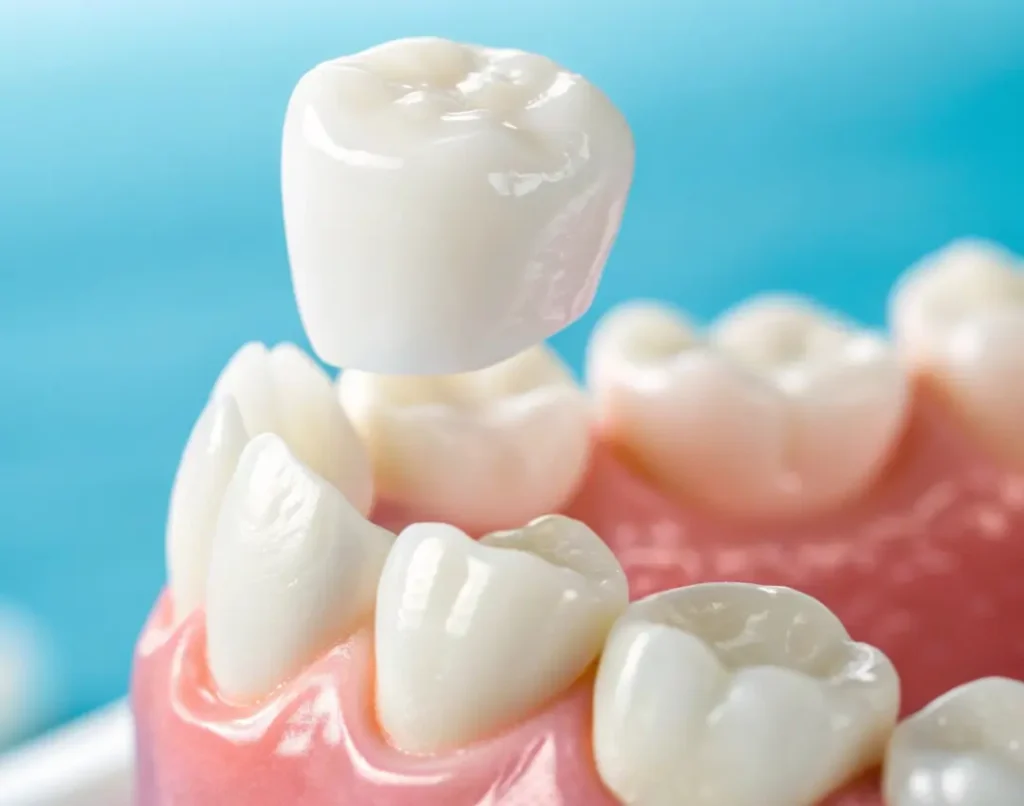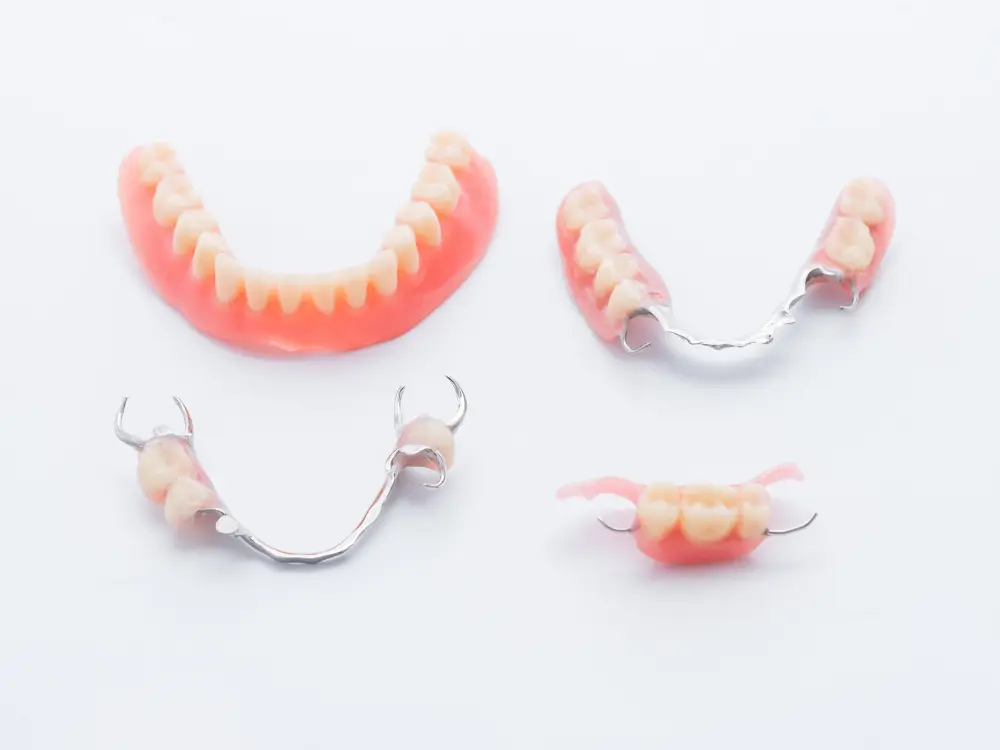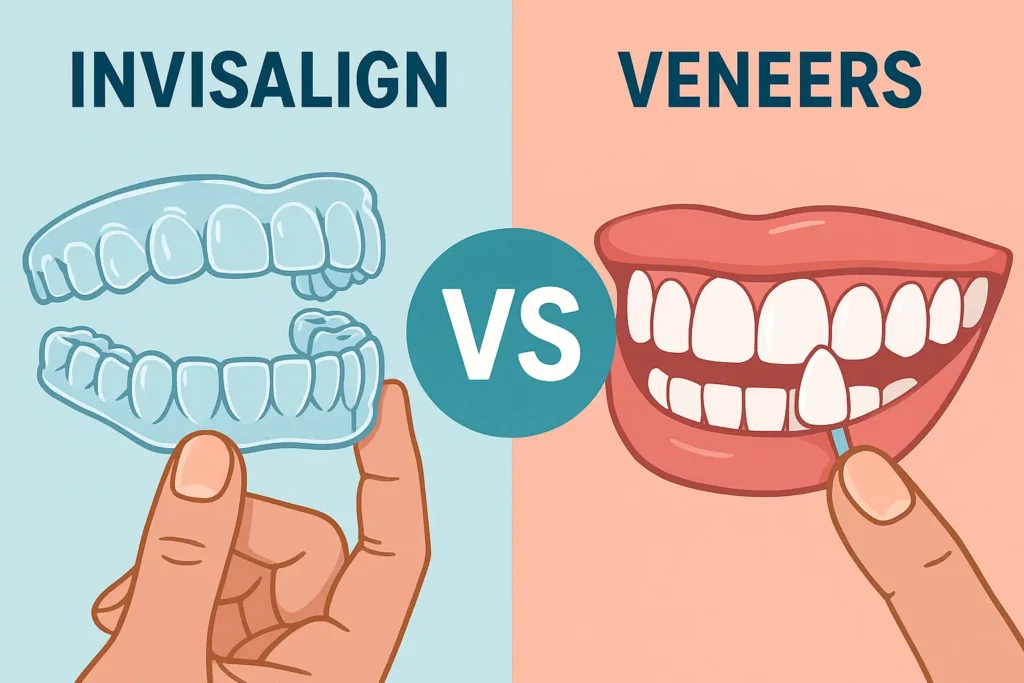Dental veneers are a popular cosmetic dentistry treatment that can transform the appearance of your smile. They are thin, tooth-coloured shells bonded to the front of your teeth, concealing various imperfections such as chips, cracks, stains, misalignment, and gaps.
With so many options available, choosing the right type of veneer for your needs can be overwhelming. In this blog post, we’ll explore the most common types of dental veneers and help you determine which one might be the best fit for you. Also, we will discuss which veneer is suitable if you have sensitive teeth or if you are a smoker.
Porcelain veneers are the most popular and natural-looking type of dental veneer. They are made from a thin, translucent ceramic material that closely resembles the appearance of natural tooth enamel. Porcelain veneers are highly resistant to staining and can last for many years with proper care.
They are an excellent choice for patients who want to achieve a bright, even smile without undergoing more extensive dental work. Porcelain veneers are also a good option for patients with sensitive teeth, as the material acts as a protective barrier against temperature changes and other stimuli that can trigger sensitivity.
Composite resin veneers are a more affordable alternative to porcelain veneers. They are made from a tooth-coloured resin material that is sculpted directly onto your teeth. Composite veneers can be completed in a single office visit and require minimal preparation of your natural teeth.
They are a good option for patients who want to make minor cosmetic improvements or have existing dental work that must be matched. However, composite veneers are less durable than porcelain veneers and may need to be replaced more frequently.
Lumineers are a type of ultra-thin veneer that requires minimal tooth preparation. They are made from a patented ceramic material that is just as strong and durable as traditional porcelain veneers.
Lumineers are a good choice for patients who want to improve the appearance of their teeth without removing a significant amount of tooth structure. They are also a good option for patients with gum recession, as they can be placed without affecting the gum line. Due to their minimal preparation, Lumineers are less sensitive than traditional porcelain veneers.
Zirconia veneers are made from a strong, tooth-coloured ceramic material that is highly resistant to chipping and breaking. They are a good choice for patients with severely damaged or discoloured teeth that cannot be effectively restored with other veneers.
Zirconia veneers are also a good option for patients who grind or clench their teeth, as they are more durable than other types of veneers. Zirconia veneers have relatively low maintenance requirements, with regular brushing, flossing, and professional cleanings typically all that is needed to keep them looking their best.
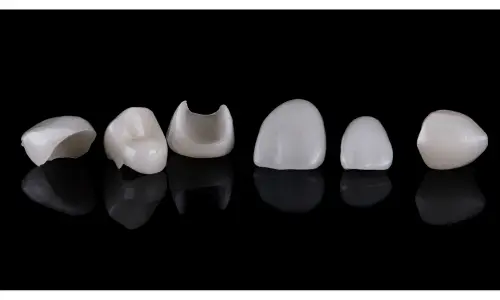
Ceramic veneers are made from tooth-coloured ceramic material similar to porcelain veneers in appearance and durability. They are a good option for patients who want to make minor cosmetic improvements without undergoing more extensive dental work.
Ceramic veneers can be completed in a single office visit and require minimal preparation of your natural teeth. They are less expensive than porcelain veneers but may not last as long.
Sustainability: May need to be replaced more frequently than porcelain veneers.
Glass ionomer veneers are made from a tooth-coloured resin material that is bonded to the front of your teeth. They are a more affordable option than porcelain or ceramic veneers and can be completed in a single office visit.
Glass ionomer veneers are a good choice for patients who want to make minor cosmetic improvements without undergoing more extensive dental work. However, they are less durable than other types of veneers and may need to be replaced more frequently.
Sustainability: May need to be replaced more frequently than porcelain veneers.
Hybrid veneers combine porcelain and composite resin materials. They offer a balance between durability and cost, making them a good option for patients who want a long-lasting solution without the high price tag of traditional porcelain veneers.
Hybrid veneers are more durable than composite resin veneers but less durable than porcelain veneers. They require multiple appointments over several weeks to complete.
Full veneer crowns are a type of veneer that covers the entire tooth, rather than just the front surface. They are a good choice for patients with severely damaged or discoloured teeth that cannot be effectively restored with other veneers.
Full veneer crowns are highly durable and resistant to chipping and breaking, making them a good option for patients who grind or clench their teeth. However, they are generally the most expensive type of veneer and require multiple appointments for several weeks.
Sustainability: Can last for many years with proper care.
No-prep veneers are a type of veneer that requires minimal tooth preparation. They are a good choice for patients who want to improve the appearance of their teeth without undergoing more extensive dental work.
No-prep veneers are less durable than porcelain veneers but still practical for minor cosmetic improvements. They can be completed in a single office visit and are less expensive than traditional porcelain veneers. However, they may need to be replaced more frequently than other types of veneers.
To sum up, there are many types of dental veneers to choose from, each with its own unique advantages and disadvantages. When selecting a type of veneer, it’s important to consider cost, durability, and the amount of tooth preparation required. Additionally, certain veneers are preferred over others in special cases.
Smokers are more prone to staining and discolouration of their teeth and dental work like veneers. The tar and nicotine in cigarette smoke can cause unsightly stains that are difficult to remove.
Suitable Veneer Types for Smokers:
Why: The smooth, non-porous surface of porcelain and zirconia makes it harder for stains to adhere to the veneer material compared to composite resin, which has a rougher texture.
The removal of enamel required for traditional veneer placement can exacerbate tooth sensitivity. Patients with sensitive teeth need to consider their options carefully.
Suitable Veneer Types for Sensitive Teeth:

Why: Porcelain’s thickness and insulating properties help block stimuli that trigger sensitivity. Composite resin veneers are thinner and less likely to cause sensitivity. Minimal-prep veneers preserve more of the natural tooth structure, reducing sensitivity.
Veneers can correct minor misalignments and unevenness in the teeth cosmetically.
Suitable Veneer Types for Misaligned/Uneven Teeth:
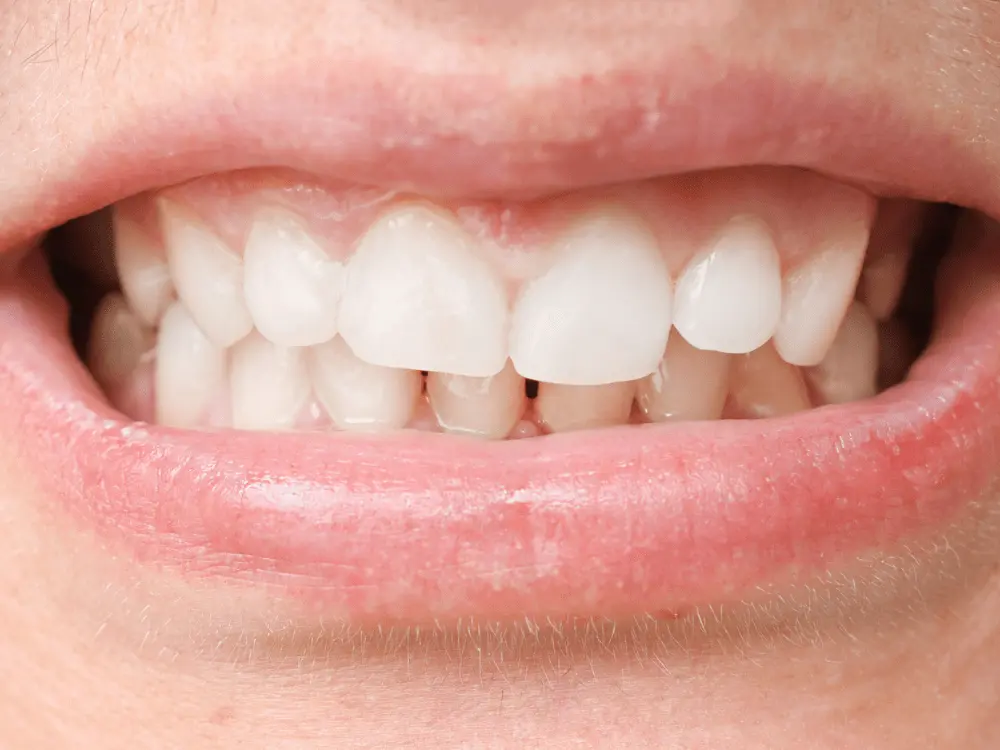
Why: The versatility of porcelain allows it to be shaped and contoured to mask gaps, overlaps, and other minor alignment issues. Composite resin can be directly bonded and sculpted chairside for a quick fix.
Veneers may not be suitable for teeth with extensive damage, decay, or discolouration, which may require more extensive treatment.
Why: Full veneer crowns provide more coverage and protection for teeth with significant structural damage. The opacity of zirconia allows it to conceal dark or unsightly stains that would show through thinner veneer materials.
Many of you might be thinking about which veneer is the best; here’s the answer to your question.
Well, it depends on whom we are using it for.
Porcelain veneers are the most durable option, lasting 15-20 years with proper care. Zirconia veneers are also highly resistant to chipping and cracking. Indirect composite veneers are more durable than direct composite.
Direct composite veneers are the most affordable at $250-$1,500 per tooth. Indirect composite is next, followed by porcelain at $925-$2,500 per tooth. Zirconia veneers are generally the most expensive option.
Porcelain and zirconia are the most stain-resistant materials, making them the best choice for smokers. Their smooth, non-porous surfaces are less prone to discolouration from smoking than composite resin.
Minimal-prep veneers require the least amount of enamel removal, making them ideal for sensitive teeth. Composite resin is also a good option as it is less likely to transmit temperature changes. Porcelain veneers can still trigger sensitivity in some cases due to the need for enamel removal.
Porcelain veneers most closely mimic the appearance of natural tooth enamel, with light-reflecting properties similar to real teeth. Indirect composite can be sculpted to look natural, while direct composite may blend in more slowly.
Porcelain veneers can be customized in shape and size to correct minor misalignments and unevenness. Composite resin can also be sculpted to improve the appearance of crooked teeth in a single visit.
The opaque nature of zirconia allows it to effectively mask severe discolouration that would show through thinner veneer materials. Porcelain is also effective at concealing stains, while composite resin may not provide as much coverage.
Thus, porcelain veneers offer the best combination of durability, stain resistance, and natural appearance, making them a top choice overall. However, depending on the patient’s needs and budget, composite resin and minimal-prep options can be suitable alternatives. Consulting with an experienced cosmetic dentist is crucial in determining the best veneer type for each case.
The choice of veneer type depends on the patient’s specific needs and oral conditions. Smokers should opt for stain-resistant materials like porcelain or zirconia. Patients with sensitive teeth benefit from minimal-prep options or materials that provide insulation. Veneers can improve the appearance of misaligned teeth, but severely damaged or discoloured teeth may require alternative treatments.
Patients with active gum disease or untreated cavities are generally only suitable candidates for dental veneers once the underlying oral health issues have been addressed. Proper treatment and maintenance of the teeth and gums are crucial for the long-term success of any veneer restoration.
